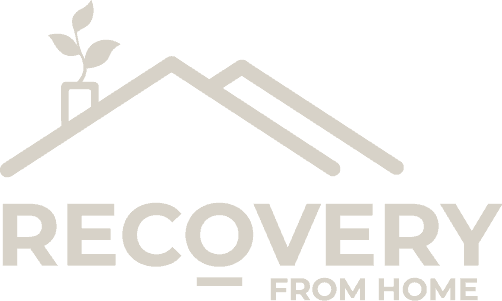The landscape of addiction treatment is evolving rapidly, with virtual therapy emerging as a powerful tool in the journey towards recovery. As technology advances and accessibility becomes paramount, online counseling for substance abuse offers a flexible, convenient, and effective alternative to traditional in-person treatment. This comprehensive guide explores the myriad benefits of teletherapy for addiction, its effectiveness, and how it’s reshaping the way we approach substance abuse recovery.
Understanding Virtual Therapy for Addiction
Virtual therapy, also known as teletherapy or online counseling, leverages digital platforms to provide mental health and substance abuse treatment services remotely. This innovative approach allows individuals to connect with licensed therapists and counselors through video calls, phone sessions, or secure messaging systems, all from the comfort of their own space.
The Rise of Telehealth in Addiction Treatment
The adoption of telehealth services has seen a significant surge in recent years, particularly in the realm of mental health and addiction treatment. This growth has been further accelerated by global events that have necessitated remote solutions for healthcare delivery. As a result, more individuals are turning to virtual therapy as a viable option for addressing substance use disorders.
How Online Counseling Works
Online addiction counseling typically involves scheduled sessions with a qualified therapist conducted via secure video conferencing platforms. These sessions can be individual or group-based, mirroring the structure of traditional in-person therapy. Patients engage in discussions, receive guidance, and work through recovery strategies, all through their digital devices.
Types of Virtual Addiction Services
Virtual therapy for substance abuse encompasses a range of services, including:
Sure, I’d be happy to explain each of these points in the context of virtual therapy for substance abuse and what they might mean for an article discussing this topic. These are common services offered in virtual therapy settings, adapted from traditional in-person approaches to fit a digital environment. Here’s a breakdown:
1. One-on-One Counseling Sessions
- Explanation: This refers to private, individualized therapy sessions conducted virtually (e.g., via video calls, phone, or chat) between a client and a licensed therapist or counselor. The focus is typically on addressing the individual’s specific struggles with substance abuse, exploring triggers, setting goals, and developing coping strategies.
- For an Article: You could elaborate on how virtual one-on-one sessions provide personalized care, their convenience (no travel needed), and their role in building a trusting therapeutic relationship. You might also mention potential challenges, like ensuring privacy or managing technical issues, and how they compare to in-person sessions.
2. Family Therapy and Support
- Explanation: This involves virtual sessions that include family members or loved ones to address the broader impact of substance abuse on relationships and home dynamics. It aims to improve communication, resolve conflicts, and create a supportive environment for recovery.
- For an Article: You could discuss how virtual family therapy makes it easier for families to participate regardless of location, reducing logistical barriers. It might also explore how family involvement can enhance recovery outcomes and provide examples, like a therapist guiding a family through a video session to rebuild trust.
3. Cognitive-Behavioral Therapy (CBT)
- Explanation: CBT is a structured, evidence-based therapy that helps individuals identify and change negative thought patterns and behaviors linked to substance abuse. In a virtual setting, this might involve video-based exercises, worksheets shared online, or guided discussions.
- For an Article: You could explain how CBT adapts to virtual platforms, emphasizing its focus on practical skills (e.g., managing cravings or reframing thoughts). Highlight its effectiveness for substance abuse and how therapists deliver it remotely, perhaps with examples like a client practicing coping techniques via a live session.
4. Dialectical Behavior Therapy (DBT)
- Explanation: DBT is a type of therapy that combines CBT with mindfulness techniques, originally developed for emotional regulation issues but now widely used for substance abuse. Virtually, it might include group skills training or one-on-one coaching over video to manage intense emotions and reduce relapse risk.
- For an Article: You could dive into how DBT’s focus on acceptance and change suits substance abuse treatment, especially for those with co-occurring mental health issues. Mention how virtual delivery maintains its interactive elements, like role-playing or mindfulness exercises, and its growing popularity in telehealth.
5. Medication Management Consultations
- Explanation: These are virtual appointments with a healthcare provider (e.g., a psychiatrist or doctor) to prescribe, monitor, and adjust medications that support recovery, such as buprenorphine for opioid addiction or naltrexone for alcohol dependence.
- For an Article: You could explore how virtual medication management increases access to care, especially in rural areas, and ensures ongoing oversight without in-person visits. Discuss the process (e.g., e-prescriptions, follow-up calls) and address concerns like safety or misuse prevention in a virtual context.
6. Recovery Coaching and Support
- Explanation: This involves guidance from a recovery coach—often a peer with lived experience—delivered virtually to provide motivation, accountability, and practical advice. It’s less clinical than therapy and more focused on day-to-day sobriety support.
- For an Article: You could highlight how virtual recovery coaching offers flexible, ongoing encouragement (e.g., via text, video, or apps) and complements formal therapy. Include its appeal for those seeking relatable, non-judgmental support and how it leverages technology for constant connection.
This diverse array of options ensures that individuals can access comprehensive care tailored to their specific needs and circumstances.
The Effectiveness of Online Addiction Treatment
A common concern among those considering virtual therapy is its efficacy compared to traditional in-person treatment. Research and clinical experiences have shown promising results, indicating that online counseling can be just as effective as face-to-face therapy for many individuals struggling with substance abuse.
Evidence-Based Success Rates
Studies have demonstrated that virtual therapy for addiction can yield impressive outcomes. For instance, research conducted by Yale University found that participants in online treatment programs had higher rates of continued engagement and achieved remission more frequently than those in traditional outpatient settings. This suggests that the accessibility and convenience of teletherapy may contribute to better long-term recovery outcomes. And this is due to the patient staying committed and involved in their life, instead of going away and taking a break from it, which is essentially what the substance abuse can be about. So staying comitted to ones life, is important. There are no pieces to pickup, it’s an ongoing reshaping of ones life, a constant view on improvement.
Factors Contributing to Effectiveness
Several elements contribute to the success of online addiction treatment:
- Increased accessibility leading to consistent attendance
- Reduced barriers to entry, encouraging more individuals to seek help
- The comfort of receiving treatment in a familiar environment
- Flexibility in scheduling, accommodating various lifestyles
- The ability to connect with specialists regardless of geographical location
- Not being influenced by other rehab participants who don’t want to be there into mischievousness or relapse. You are free from other negative influences.
These factors combine to create a supportive framework that enhances the therapeutic experience and promotes sustained recovery efforts.
Limitations and Considerations
While virtual therapy offers numerous benefits, it’s important to acknowledge that it may not be suitable for everyone. Individuals with severe addictions or co-occurring mental health disorders may require more intensive, in-person care. Additionally, those without reliable internet access or private spaces for sessions may face challenges in fully engaging with online treatment.
Key Benefits of Virtual Addiction Treatment
The advantages of online therapy for substance abuse recovery are multifaceted, addressing many of the common barriers that prevent individuals from seeking or maintaining treatment.
Enhanced Accessibility and Convenience
One of the most significant benefits of virtual therapy is its ability to bring treatment directly to the individual, regardless of their location. This increased accessibility is particularly valuable for:
- Those living in rural or remote areas with limited local treatment options
- Individuals with mobility issues or disabilities that make travel difficult
- People with demanding work schedules or family responsibilities
- Those who prefer to maintain privacy in their recovery journey
The convenience of accessing therapy from home or any private location eliminates many of the logistical challenges associated with in-person treatment.
Flexible Scheduling Options
Virtual therapy offers unparalleled flexibility in scheduling, allowing individuals to fit treatment into their lives more seamlessly. This adaptability is crucial for:
- Working professionals who can schedule sessions during lunch breaks or after hours
- Parents who need to coordinate therapy around childcare responsibilities
- Students balancing recovery with academic commitments
- Those with unpredictable schedules or shift work
The ability to attend sessions at times that work best for the individual increases the likelihood of consistent participation and long-term engagement in treatment.
Cost-Effective Treatment Solutions
Online counseling often presents a more affordable option for addiction treatment. Cost savings can be realized through:
- Reduced or eliminated travel expenses
- No need for childcare arrangements during therapy sessions
- Potential for lower session fees due to reduced overhead for providers
- Decreased time off work for appointments
These financial benefits make ongoing treatment more sustainable for many individuals, potentially leading to better long-term outcomes.
Privacy and Confidentiality
For many, the stigma associated with seeking addiction treatment can be a significant barrier. Virtual therapy offers enhanced privacy by:
- Eliminating the need to be seen entering a treatment facility.
- Providing a discreet way to attend sessions from any location wihout having to take off work to explain why.
- Ensuring that conversations remain confidential within the digital platform.
- Offering anonymity and no need for group therapy sessions.
This level of privacy can encourage more individuals to take the first step towards recovery without fear of judgment or exposure.
Customizing Virtual Treatment Plans
One of the strengths of online addiction counseling is its ability to be tailored to individual needs and preferences. This personalization is crucial for addressing the unique challenges each person faces in their recovery journey.
Comprehensive Assessment and Goal Setting
Virtual treatment typically begins with a thorough assessment conducted online. This process helps therapists:
- Understand the individual’s substance use history and patterns
- Identify co-occurring mental health issues
- Assess the level of support needed
- Determine the most appropriate treatment modalities
Based on this assessment, therapists work with clients to establish clear, achievable goals for their recovery process.
Integrating Various Therapeutic Approaches
Online counseling allows for the integration of multiple evidence-based treatment approaches, such as:
- Cognitive-behavioral therapy (CBT) for addressing thought patterns and behaviors
- Motivational interviewing to enhance commitment to change
- Mindfulness-based relapse prevention techniques
- Trauma-informed care for those with underlying trauma issues
This multi-faceted approach ensures that treatment addresses all aspects of an individual’s addiction and recovery needs.
Adapting to Progress and Changing Needs
The virtual format allows for easy adjustment of treatment plans as an individual progresses through recovery. Therapists can:
- Increase or decrease session frequency based on current needs
- Introduce new therapeutic techniques as appropriate
- Seamlessly transition between individual and group therapy formats
- Incorporate family sessions or support groups as needed
This flexibility ensures that treatment remains responsive and effective throughout the recovery process.
The Future of Virtual Addiction Treatment
As technology continues to advance and our understanding of addiction evolves, the landscape of virtual therapy for substance abuse is poised for further innovation and growth.
Expanding Access and Reducing Stigma
As virtual addiction treatment becomes more mainstream, it has the potential to:
- Reach underserved populations in remote or rural areas
- Reduce wait times for accessing treatment
- Normalize seeking help for substance abuse issues
- Increase early intervention and prevention efforts
By breaking down barriers to care and challenging societal perceptions, online therapy can play a crucial role in addressing the global challenge of addiction.
In our experience virtual therapy for substance abuse offers a promising path to recovery, combining accessibility, flexibility, and effectiveness. As technology continues to evolve and our understanding of addiction deepens, online counseling is poised to play an increasingly vital role in helping individuals overcome substance use disorders and achieve lasting wellness. By embracing these innovative approaches and addressing the unique challenges they present, we can create a more inclusive and effective landscape for addiction treatment, ultimately improving outcomes and transforming lives.
Are You Struggling with addiction?
Recognising that you need help is the first step towards recovery. Professional treatment tailored to individual needs can help break the cycle of addiction, restore balance, and rebuild a healthy relationship with oneself and others.










Leave A Comment